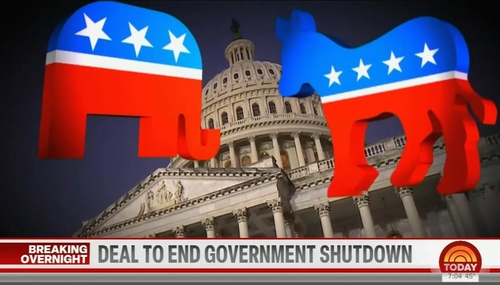Kudos to the Outlook section editors at The Washington Post for allowing presidential historians Steven Hayward, Paul Kengor, Craig Shirley, and Kiron Skinner to address how the movie “Lee Daniels’ The Butler” is inaccurate and unfair about Reagan, who they say proved his lack of bigotry in Dixon, Illinois, in Hollywood, and in the White House.
They recalled a 1983 reception for the National Council of Negro Women in July of that year, Reagan declared: “I’ve lived a long time, but I can’t remember a time in my life when I didn’t believe that prejudice and bigotry were the worst of sins.” That isn’t what the fake Reagan is like:
The butler character (played by Forest Whitaker) is invited by the Reagans to a state dinner, a gracious move wholly typical of the first family. The butler’s wife (Oprah Winfrey) clearly enjoys the evening, but the butler is portrayed as uncomfortable. He feels he’s being used as a political tool, a prop, a token African American. Shortly after this supposed humiliation, he resigns from his White House job.
In reality, Allen felt no such thing. As noted by Religion News Service, “He was especially fond of the Reagans.” A member of Allen’s church recalled that “he often talked about how nice they were to him.” Allen did leave the White House during the Reagan administration, but as Haygood’s profile mentioned, he received a “sweet note” from the president and a hug from the first lady.
The unfairness of this scene can be demonstrated by any number of historical facts. In June 1981, still recovering from an assassination attempt, Reagan sent his closest foreign policy aide, William Clark, on his first official trip; it was to South Africa to express America’s disapproval. An unsmiling Clark told Prime Minister Pieter W. Botha to his face that the new president and administration “abhorred apartheid.” Clark walked out on Botha.
While accurate in depicting Reagan’s opposition to sanctions against South Africa, “The Butler” does not explain why he opposed them. Reagan saw sanctions as harmful to the poorest South Africans: millions of blacks living in dire poverty. He also feared that the apartheid regime could be replaced by a Marxist/totalitarian one allied with the Soviet Union and Cuba and that communism would spread throughout the continent.
South Africa’s blacks were denied rights under apartheid, but communism would mean no freedom of speech, press, assembly, religion, conscience, emigration, travel or even property for anyone. Moreover, in communist nations such as Cambodia and Ethiopia, people had been slaughtered and starved on mass scales. Nearly a dozen nations had become part of the Soviet orbit in the immediate years before Reagan became president. He didn’t want South Africa to undergo the same catastrophe.
Few young people today remember how one important geopolitical complication in U.S. foreign policy was trying to offset the Soviet Union at a time when pessimists actually thought the U.S. was no match for the USSR:
Reagan adopted a policy of “constructive engagement,” seeking to keep South Africa in the anti-Soviet faction while encouraging the country toward black-majority rule — no easy feat. In one of his finest speeches, he told the United Nations on Sept. 24, 1984, that it was “a moral imperative that South Africa’s racial policies evolve peacefully but decisively toward . . . justice, liberty and human dignity.” Among his administration’s successes was the Angola-Namibia agreement, which led to the withdrawal of the white South African regime from Namibia and paved the way for that nation’s independence.
“The Butler” doesn’t deal with any of this complexity. Instead, it perpetuates an ahistorical caricature of Reagan as racially insensitive.




